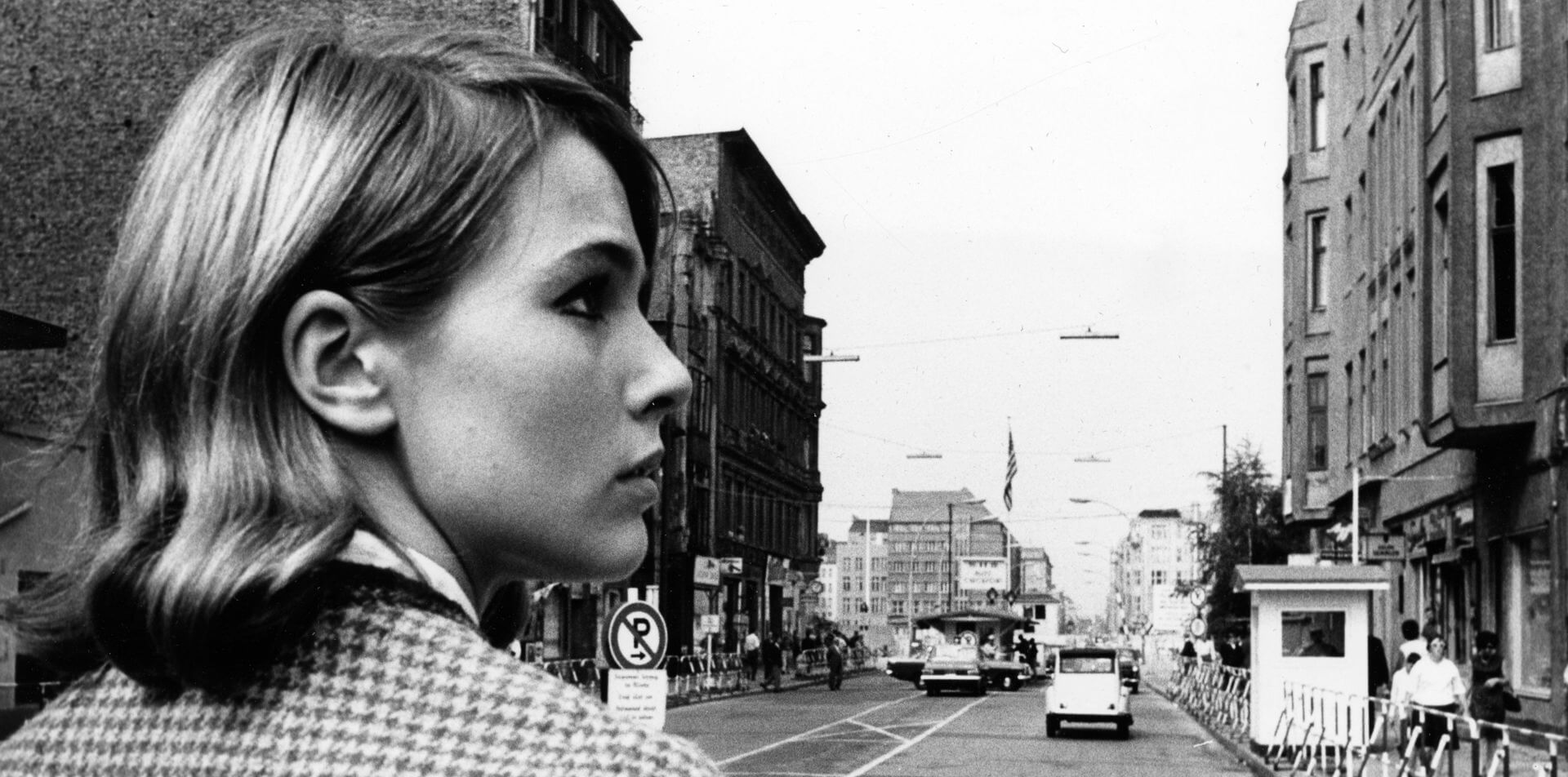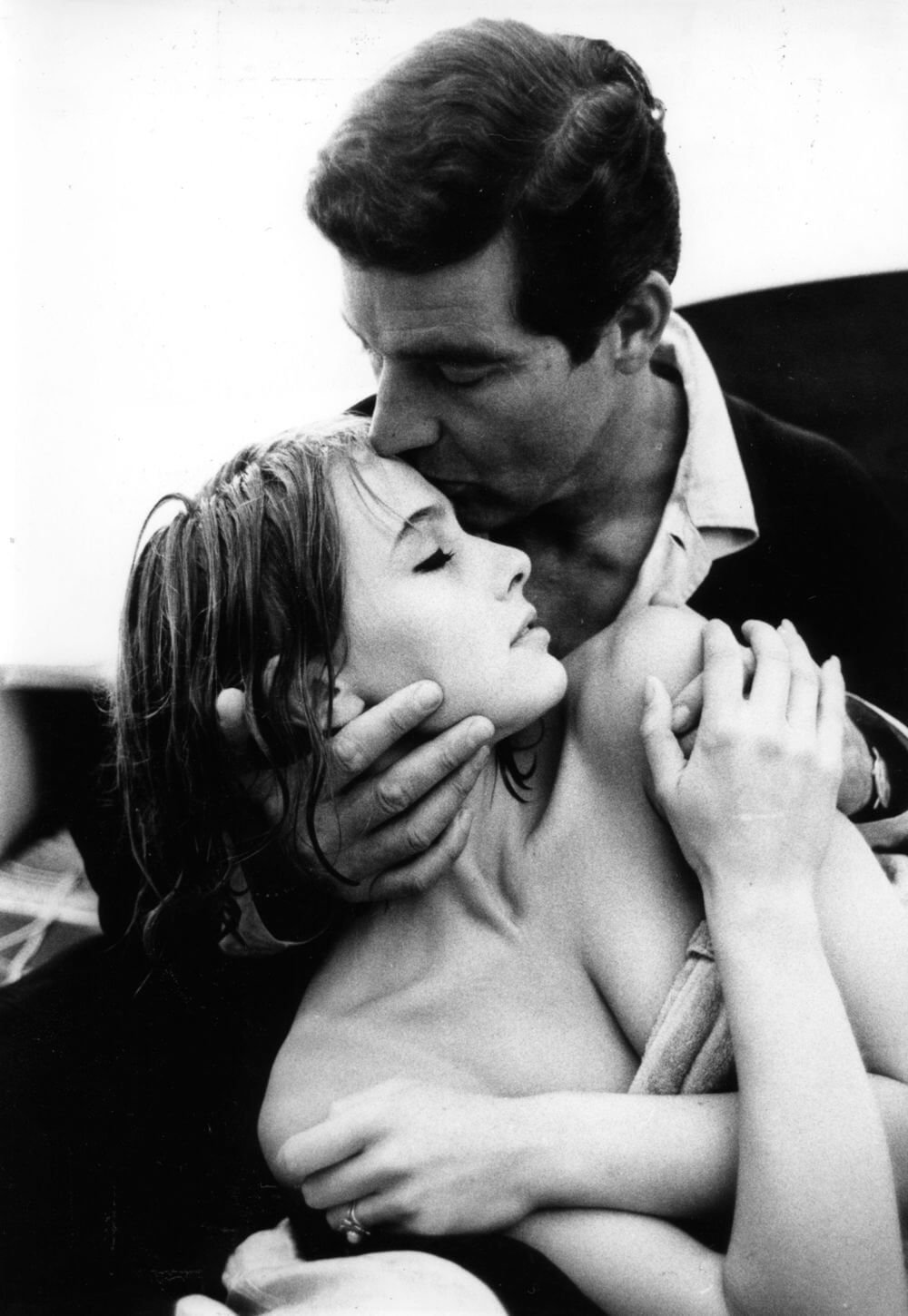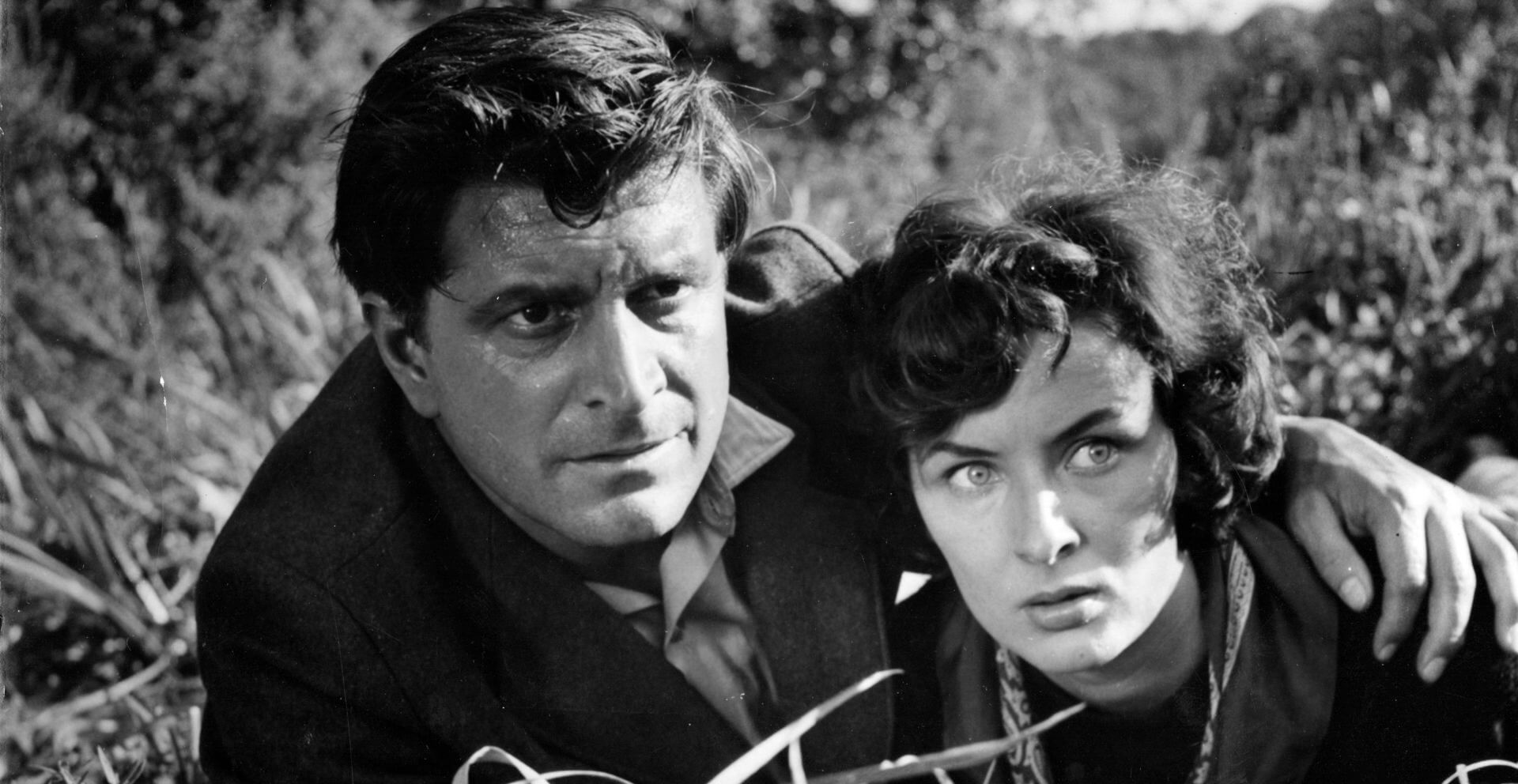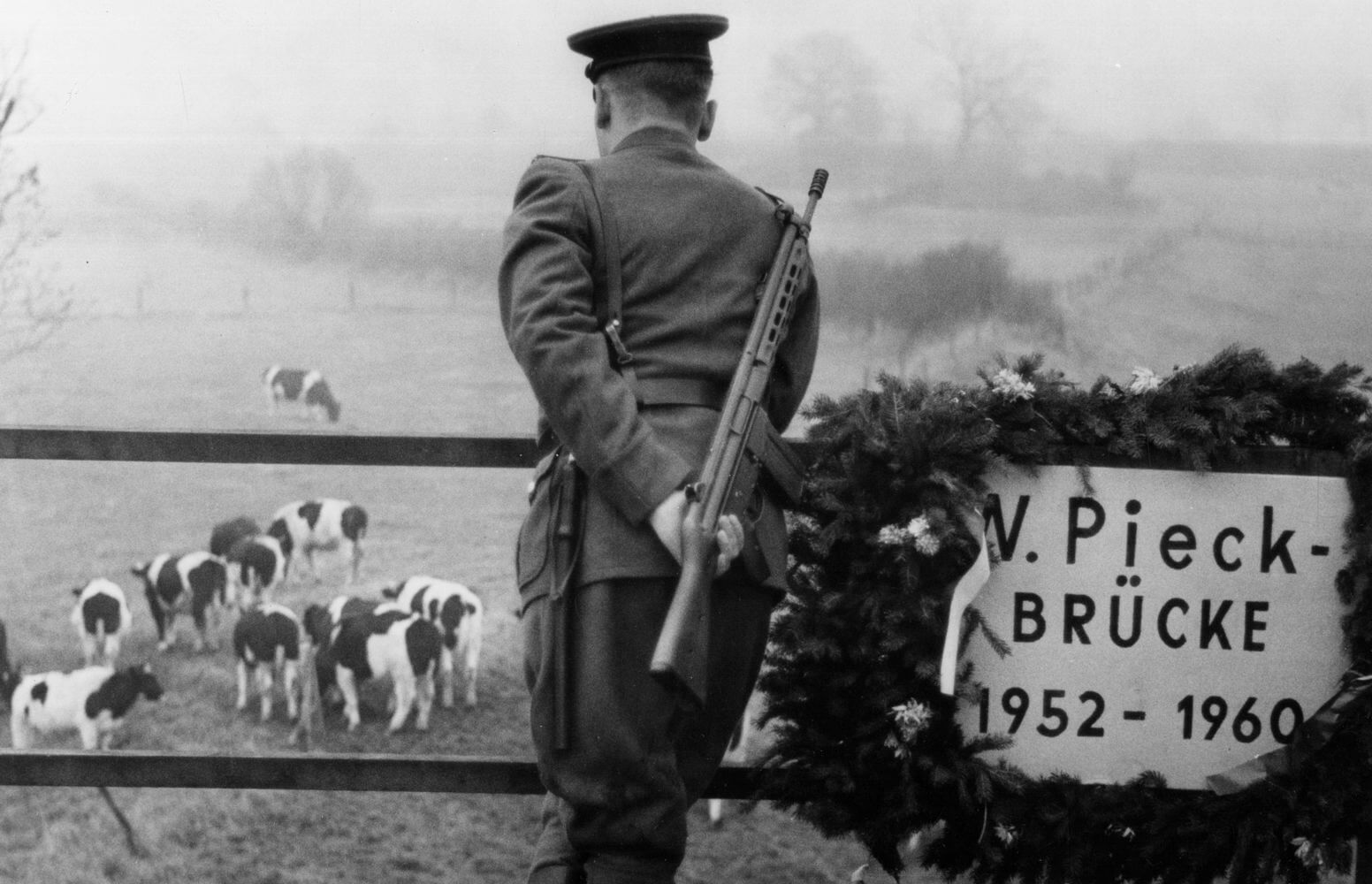After the two Berlin films by Will Tremper “Playgirl” (1966) and “Flucht nach Berlin” (1961) already appeared on the label Darlin Berlin as a DVD and were published on VoD platforms, we are pleased that the two films from May 1, 2018, we can now also re-program in theaters via our theatrical distribution.
Playgirl (1966)
Alexandra Borowski, in her mid-twenties, a high-paid, top-notch model, is one of those jet-set girls who fly to New York today, Bermuda tomorrow, and the day after tomorrow to Rome. She never stays in a hotel for long, never for a long time with a man. Having just arrived in Berlin, numerous young men are already trying to find Alexandra’s favor: the dubious Yugoslav local owner Bogdan, a young industrialist and the Italian photographer Timo. Evening invitations, theater visits, stroll through the night scene and parties are replacing each other.
In Sigbert Lahner, however, Alexandra finally encounters a person with whom – after some breakout attempts – she may stay …

Michael Baute in, new film review ‘:
… such as Ulrich Schamoni’s “Es”, the German film that, with its informality and spontaneous, without a fixed script and minimal budget scenes fulfilled the claim of young German filmmakers to create fast-paced cinema on the pulse of the time. Director and author Will Tremper (“Die endlose Nacht”), which produced without funding, lent his film himself and achieved a great audience success. Eva Renzi (1944-2005) became a star overnight. The big city ballad is a single declaration of love to Berlin.

Already its opening reminds more of the Nouvelle Vague than usual West German directors. His chronological insight into the everyday life of a woman of life draws its strength from the charming grace of Eva Renzis, who inspired Tremper to create his almost documentary narrative.
Playgirl is about a woman who knows how to wrap the men around her finger, which she takes as she pleases. With her impetuous manner of taking the helm without talking about the bush, she embodies, on the one hand, the dream of the shy masculine side, who desires to communicate needs and affection in such a direct manner and feel flattered by desire to be able to. Nevertheless, this offensiveness carries with it a conflict with the male fears of being short of others – a reason why women had to subject themselves to the man for centuries, because the source is lacking in self-confidence.
As Alexandra gives Eva Renzi a jetting around the world model that travels to Berlin after an old affair, to be excused with excuses. Playgirl is shaped by a world view that does not formally imply that the male impulses have to be unloaded according to an ancient notion, while the woman has to fear for her reputation. Alexandra does not seem to be disadvantaged by her way of life, but she has to look for her playing position in a male world in which she can be a flirtation with the fiancé and the affair, while actually looking for a fulfilled love in her experiments. Interesting in this context is her spontaneous engagement with a photographer, who makes her imperious to his object and finally relentlessly haggling over its price.
In nuances, Will Tremper also picks up on an everyday zeitgeist, primarily by simply letting his characters talk. For example, for an American photographer, the Berlin Wall becomes nothing more than a backdrop, and for a generation alien to the war, it hardly seems to realize what recent history the divided city has.
It was once fought there, Alexandra knows, at the same time asking how it was “with this Hitler”. She seems naïve in her overprotective effort to offer support to her dark-skinned neighbor, as he would certainly often be disadvantaged – which he does not understand. In this situation, she acts unintentionally as racist as her interlocutor elsewhere with his clumsy remarks. On the other hand, her behavior shows that she does not just have to give physical love.
Flucht nach Berlin (1961)
The East German farmer Hermann Güden has enough of the state-arranged harassment of the SED superiors. He is no longer willing to submit to compulsory collectivization at home in his Saxon-Anhalt village, as this condition no longer offers him any prospects. And so he plans a long-run escape to the West. Güden initially sends his wife and child to the West of Berlin and wants to follow as soon as possible.
But the SED apparatchiks get wind of the matter. In the heat of the moment Güden beat up the party comrade Baade and then flees.

The Spiegel wrote in his review of March 29, 1961: “Will Tremper, screenwriter Nasser Asphalt and scandal chronicler (Germany, your starlets), trying as a director-debutant on the subject of the GDR. The exposition – a village in the name of laying peasants – has succeeded him extremely well, and even later, short moments betray the intimate knowledge of the producer, author and director of zone states and mentality. The main features of the plot, the escape of a farmer and an SED official, are modeled after Kintopp models, so that in the film finally tear effects prevail”.

Films 1959/61, Manual VI of Catholic Film Criticism, said: ‘The film, shot in 1960, is a contemporary document of atmospheric density. Although not free of distortions and a depreciating lurid adventurousness, he may be considered worth seeing ‘.
The Encyclopedia of International Film (Editor Klaus Brüne) found: ‘The topic rarely treated in the cinema, Zone flight’, pictorially effective and exciting presented in situations and individual fates in the GDR, which inevitably interlink. An interesting contemporary document ‘.
With Will Tremper comes in the 60s, a fresh wind in German filmmaking. After writing the screenplays for the films like Die Halbstarken (1956) and Nasser Asphalt (1958), the former made his debut as a director and independent producer, fleeing to Berlin. As always, the autodidact and independent producer Tremper (1928-1989) tackled a hot iron. The German division and the flight from the East to the West, told in the lapidary style of Italian neorealism.
As little as his view of the conditions in the GDR is free of clichés, so little romantic is his film the West dar. When the rapid escape story finally ends on the Wannsee, calls a drunken blonde only, Long live the freedom!
While Theodor Kotulla blasphemed in March 1961 in the film criticism, Flucht nach Berlin is, the most broken freak who has made the West German film in the last decade ‘praised the F.A.Z. in her features (19.6.1961) the film as one of the “bravest works of German post-war productions.” Maybe the truth is somewhere in the middle. Decades later, Norbert Grob wrote in the Süddeutsche Zeitung (19.9.1998): ‘Will Tremper an advocate of headline cinema, a German filmmaker in the tradition of hardboiled directors, a brother in the spirit of the great naive and rabbi, by Robert Aldrich, John Sturges and Samuel Fuller ‘.
More information about the films can be found on the page for our catalog films: Theatrical Movie Catalogue

